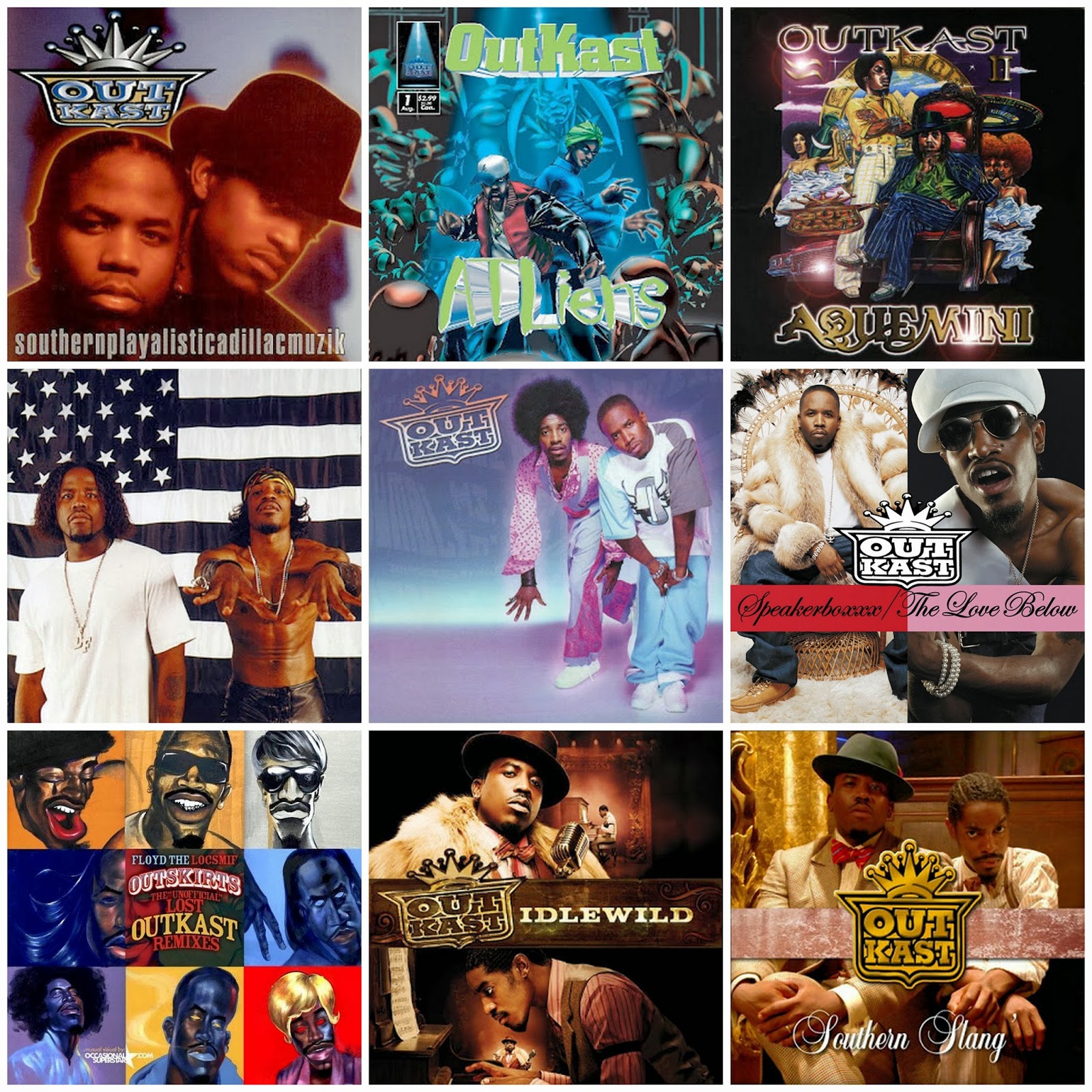
History suggests that the "reunion" was part of their plan, and it shouldn't be viewed as the reconciliation of a shocking break-up. Andre and Big are interconnected souls, whose lives are documented across six albums. It wasn't Andre and Big Boi failed at solo either. It’s wasn't an Outkast needs to get paid tour. It wasn't the reunion of two out-of-the-spotlight rappers. This sheds light on the motivations for an Outkast reunion in 2014. When Andre says he’s tired of hip hop and rapping, the experiment ran its course. After Idlewild's completion in ‘06, a hiatus is almost inevitable. As early as Aquemini (‘98), they admitted that they would pursue solo works after their next album. If you’re an Outkast fan from the beginning, you see stylistic differences continue to compound. Fortunately, the result was a net gain in fans who were traditionally non-hip-hop.Īndre and Big Boi’s creative differences tragically climax on Speakerboxxx, with Andre and Big Boi at their most distant (and coincidentally, height of popularity). When Outkast produced B.O.B., Big Boi worried that their base, hardcore hip hop fans in ATL’s hardest neighborhoods, would reject the heavy rock guitar riffs. You hear this creative tension throughout Aquemini and Stankonia. So that really kinda gave me a push and I think my songwriting abilities were pushed in that way. Maybe I’m not transmitting it right but this is cool. The first time I did it, kinda pulled me to the side and said, ‘I just wanna let you know niggas in the street, they don’t be liking when you do your voice like that.’ But to me, in my head, I was like it sounds cool. The first time Andre started to croon and modulate his voice, there’s this anecdote from an interview: The two debate how long they can continue to make music together with such opposing styles, regardless of how ground-breaking the "musical mashup" is for hip hop. Naturally, this creative tension leads to breakup rumors, a major theme represented on Aquemini. Or as Big Boi puts it, "two unique, individual styles meshed together to make one monster mayhem musical mashup.”Īndre is experimenting and growing beyond hip hop, yet Big Boi is perfectly content with maintaining the gangsta persona. What’s seemingly overlooked is Andre and Big Boi’s creative genius despite an increasingly divergent approach to music. In fact, Big Boi's recent solo work has taken several experimental directions, helping fans clearly identify his role on early Outkast tracks. The above graph is an obvious over-simplification and should convey Andre's movement away from hip hop – not Boi Boi lack of experimentation.

These self-produced songs are about aliens, stars, and Nuwabian Nation-just about as far as you can get from the glorification of pimps, guns, and drugs (east/west-coast themes). Outkast's sound became even more distinct when they began producing their own music on ATLiens (their second album). There’s even evidence of Puff Daddy directing Playa’s Ball (Outkast’s first single in ’94) and bringing Kangol hats back to NYC.

Intersections and businesses referenced in the songs gained popularity. Their music was heard on every street-corner and from cars driving by. There are countless anecdotes that Atlanta was absolutely captivated by Outkast's early music. “Skeet" and “crunk” were just part of what Outkast’s southern roots brought to hip hop.īeyond ATL slang, Outkast’s first four albums contain copious drawl and references to Atlanta (strip clubs, projects, neighborhoods, intersections, Cadillacs), creating a sound that was distinctly southern. From the beginning, Big Boi and Andre prided themselves on originality (hence the name, Outkast – to be different from the rest of the hip hop scene). Rather than emulate the east/west-coast sound and image, Outkast brought a totally new approach to hip hop. (fast forward to 3:55 to hear the speech) But the south got something to say-that’s all I got to say. We got a demo tape and no one wants to hear it. During the acceptance speech, the east/west-coast’s lack of respect for the south revealed itself in the form of boos from the audience.īig Boi paid tribute to New York and “all the original MCs,” but Andre decided to rant, People began to take the South more seriously when Outkast won the ’95 Source award for best new group. Here's why: before Outkast, southern hip hop was jokingly called “country shit” by east/west-coast constituencies.

Southern themes in hip hop are intimately connected to Outkast's legacy. What I never realized is that this is consistent with Outkast’s position as the face of southern hip hop – "crunk" and "skeet" both originated from the south. Turns out that there’s definitely a case for Outkast first-use of "crunk" and "skeet". As a fan of hip hop etymology, I looked for Outkast's role as potential inventors of slang.


 0 kommentar(er)
0 kommentar(er)
